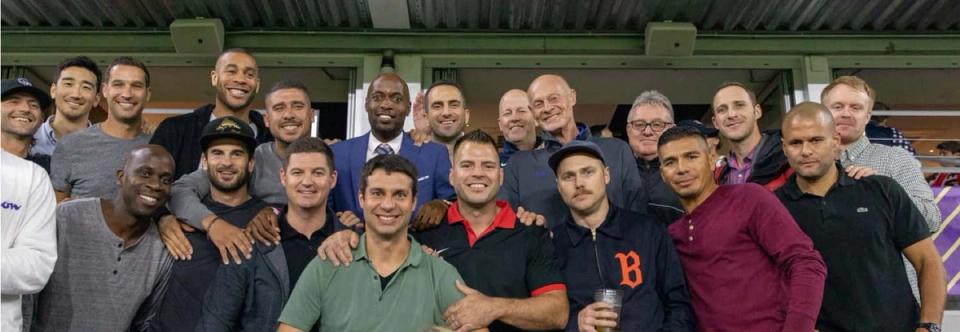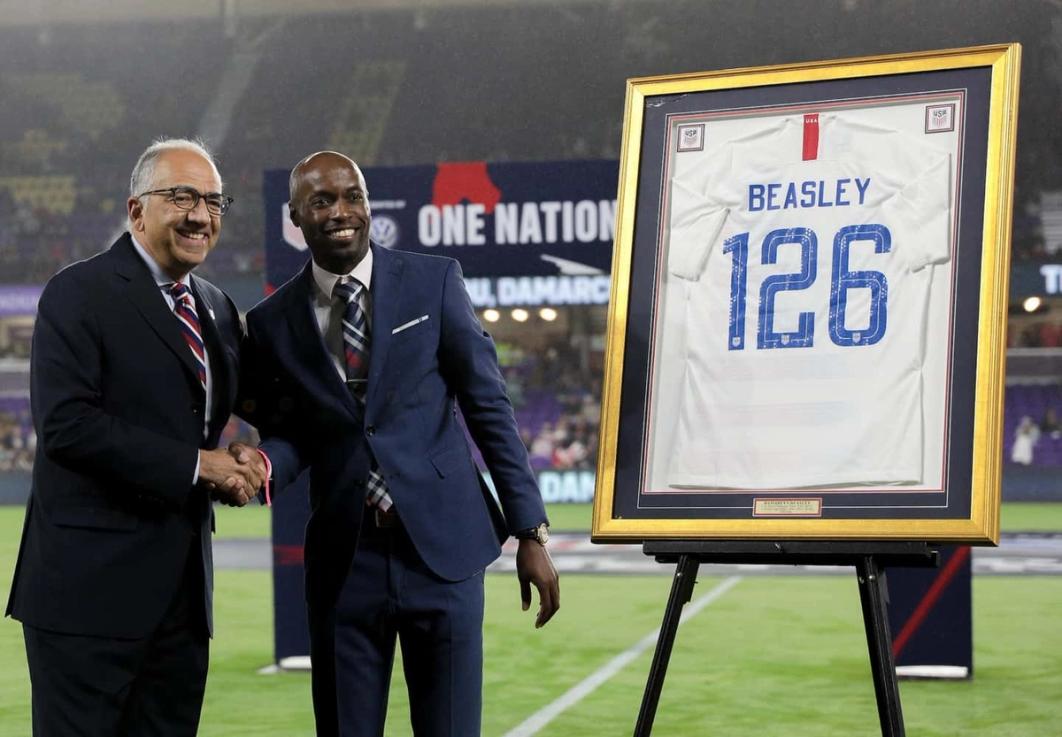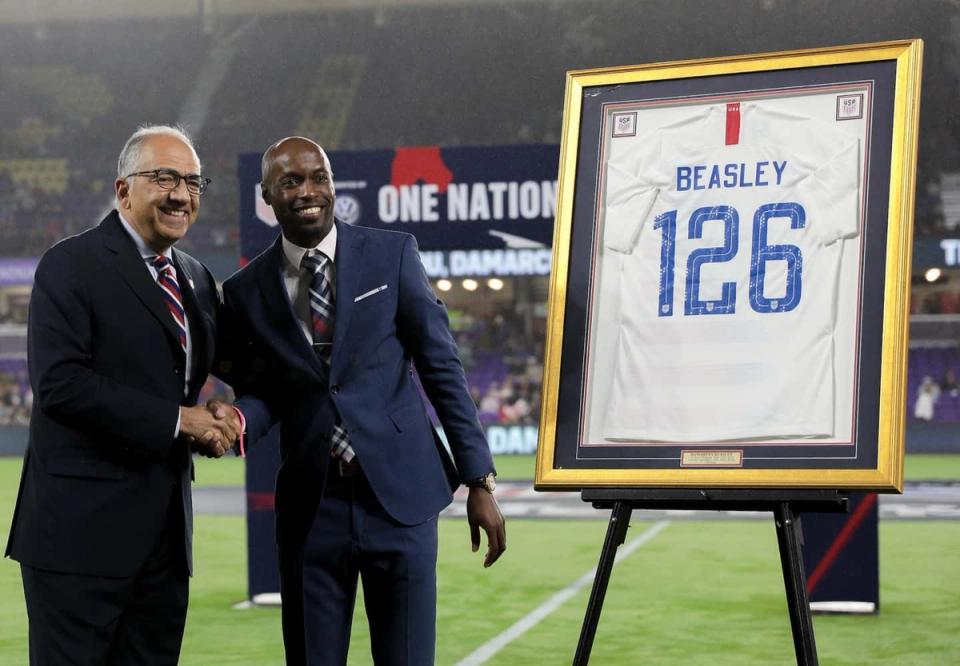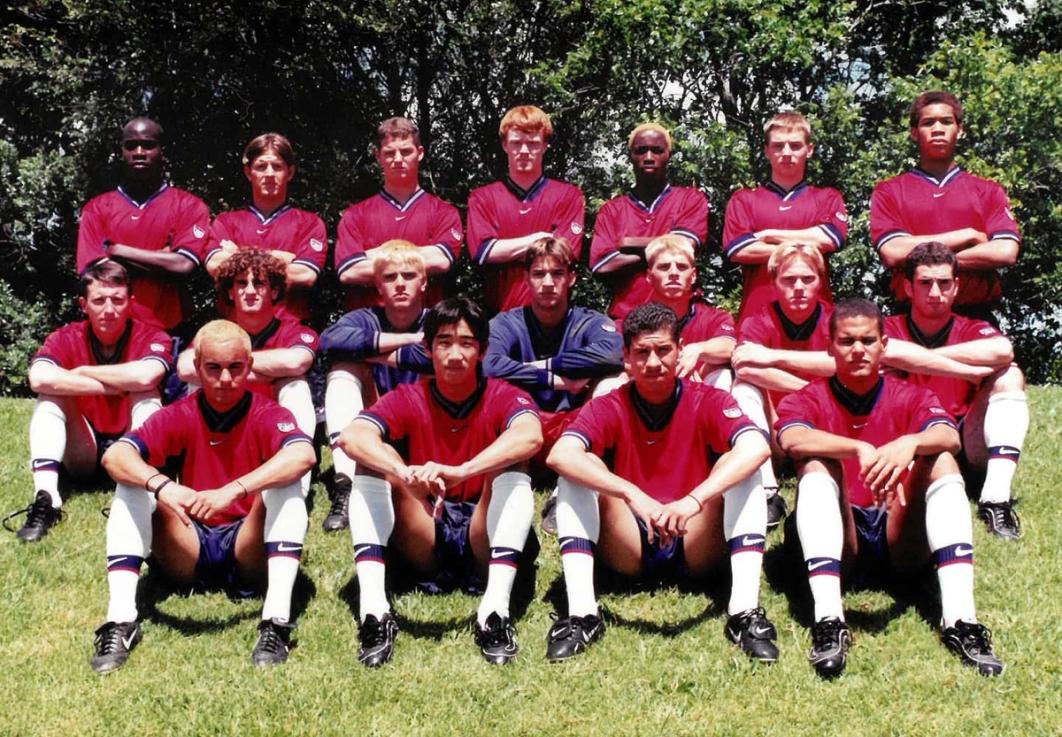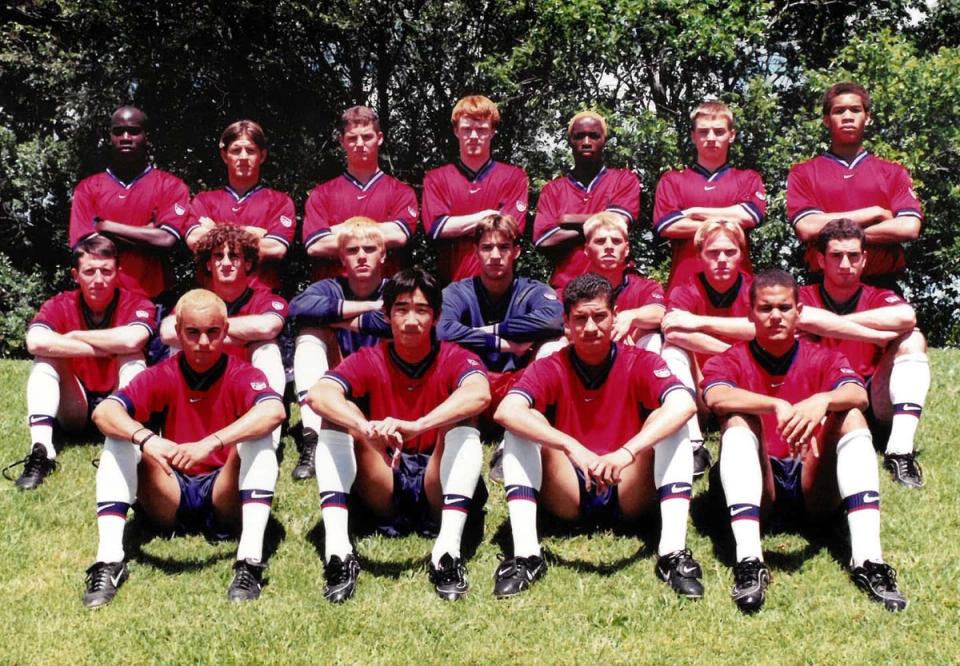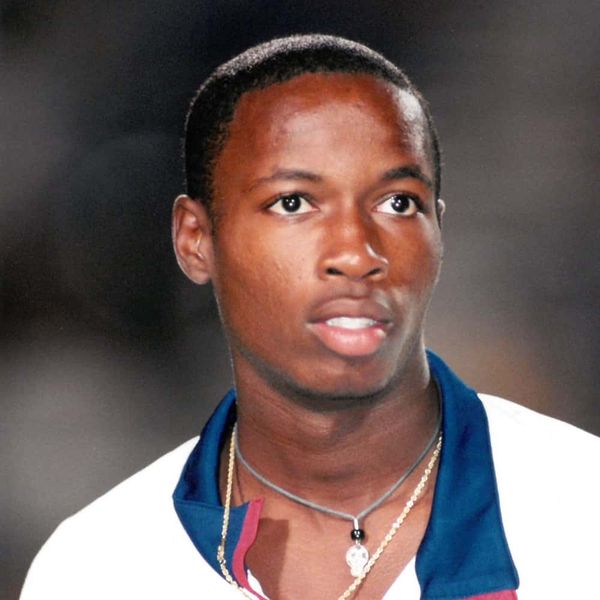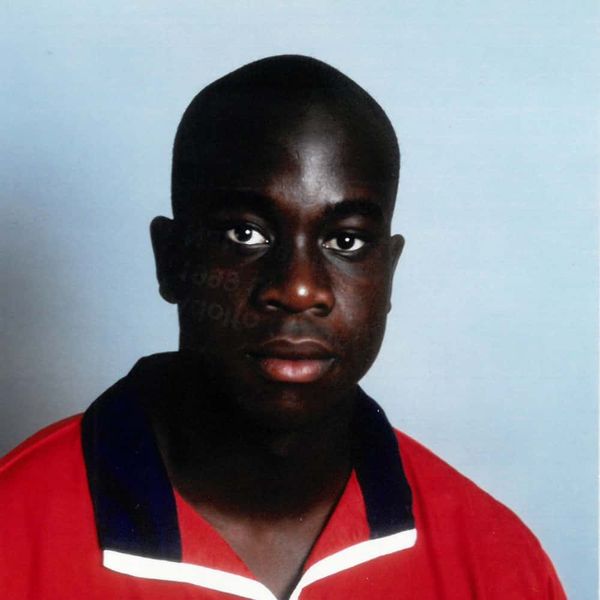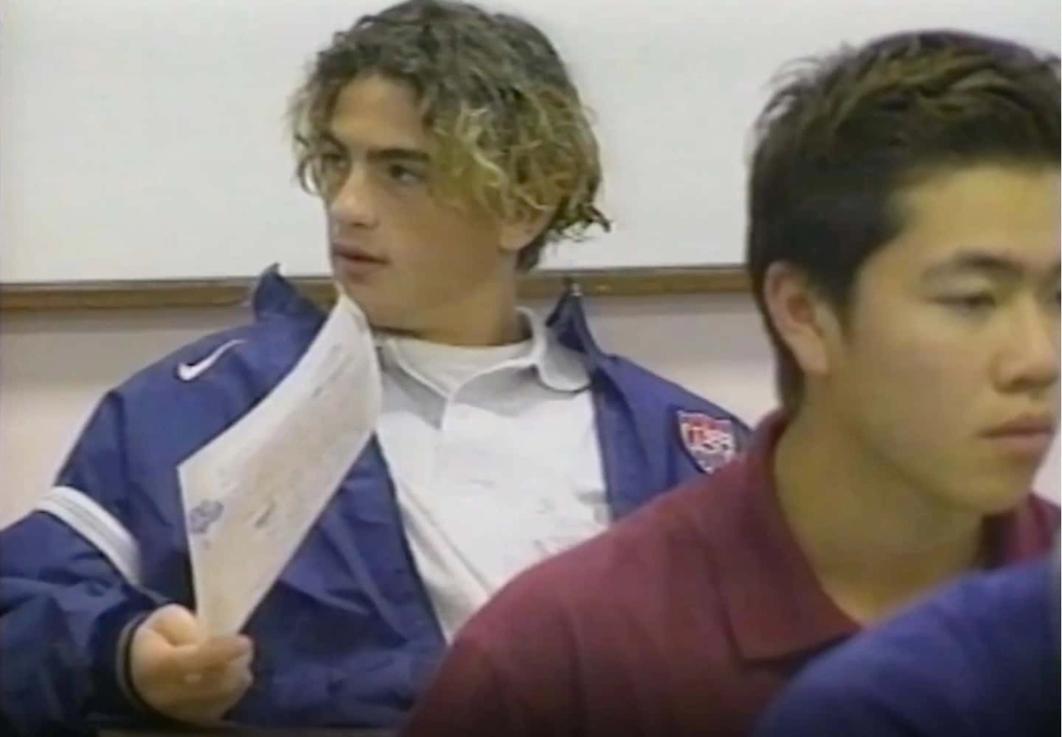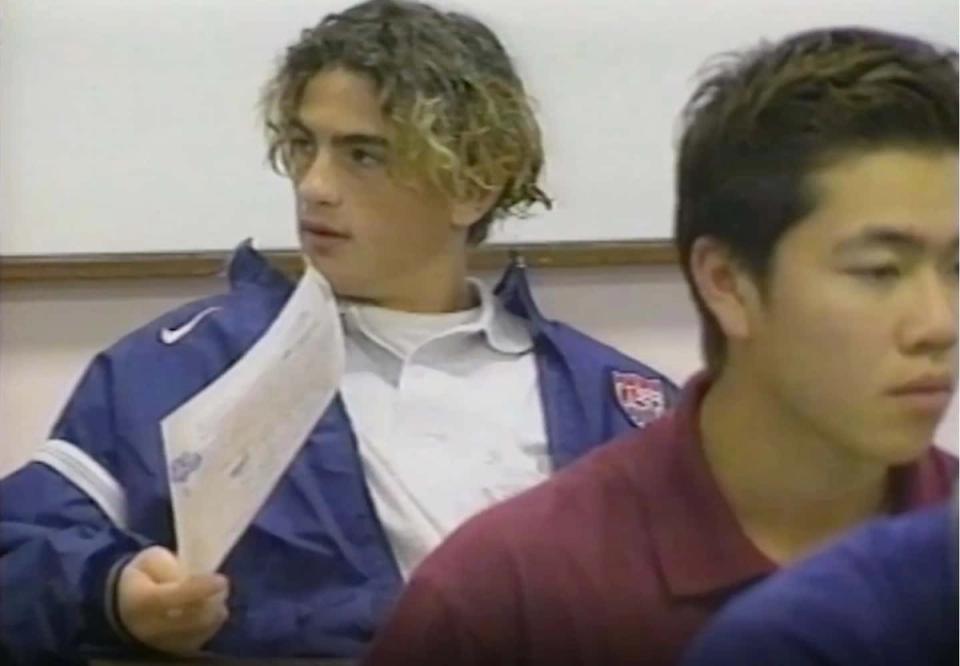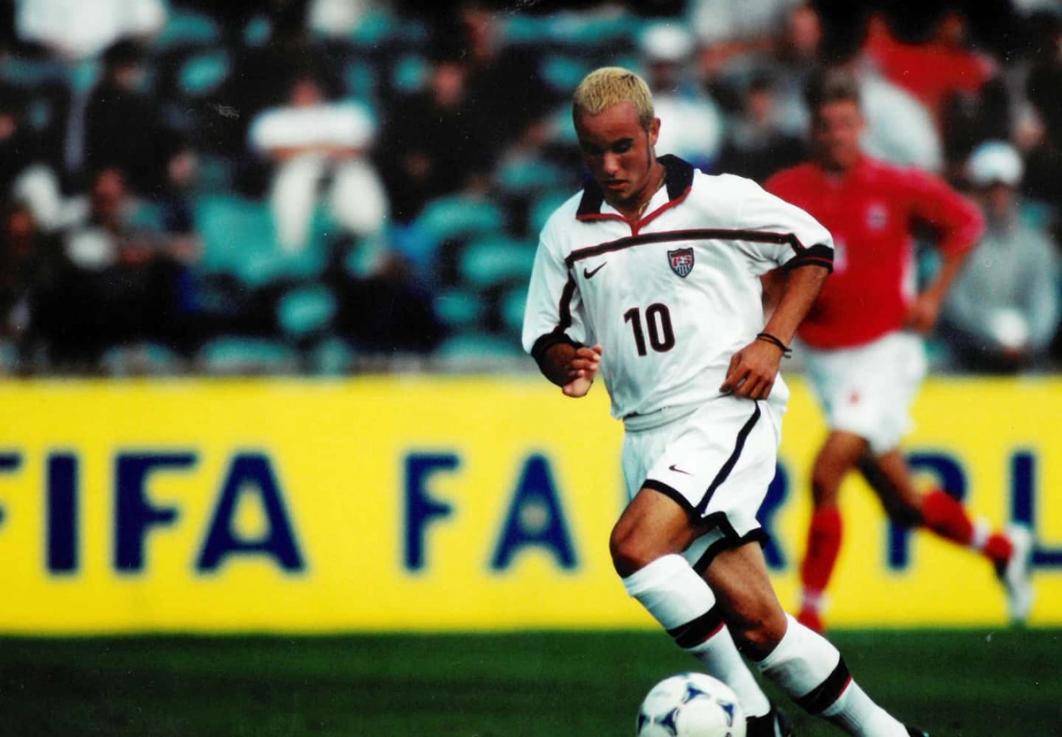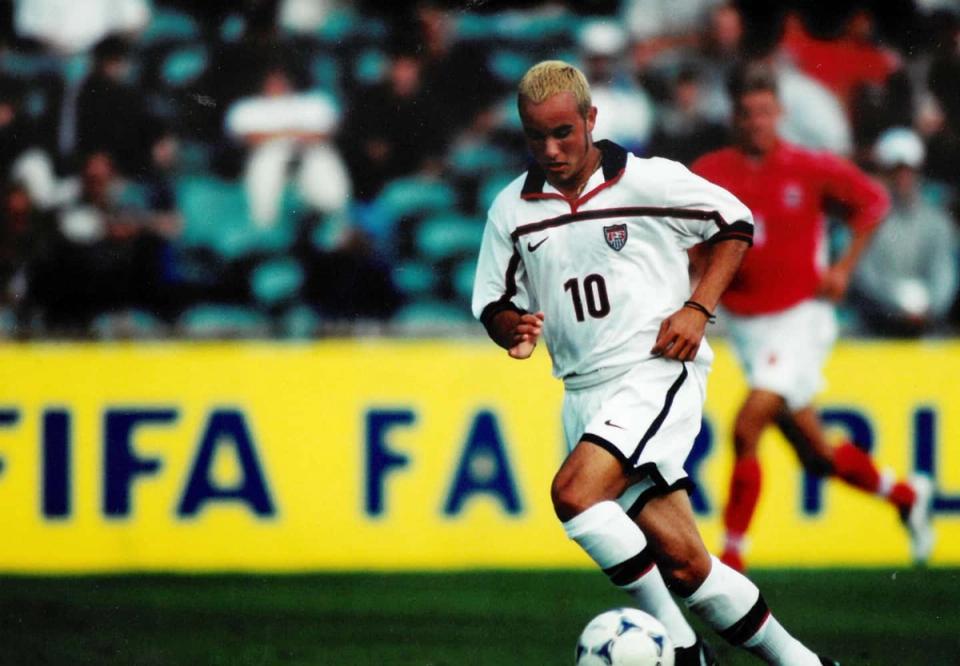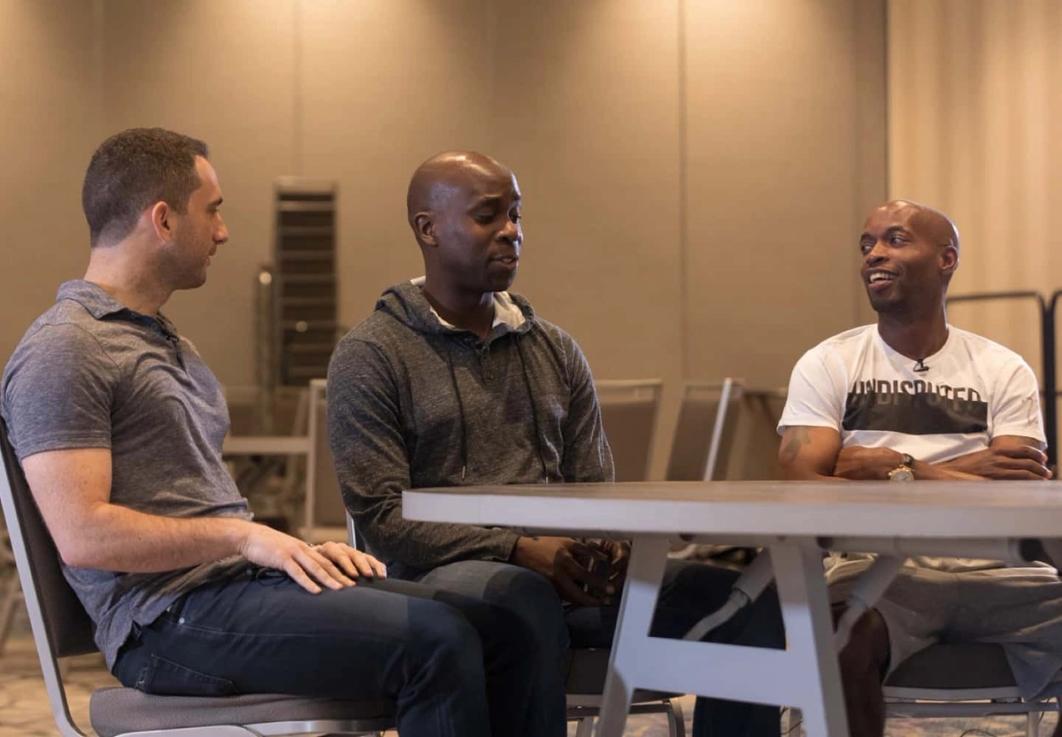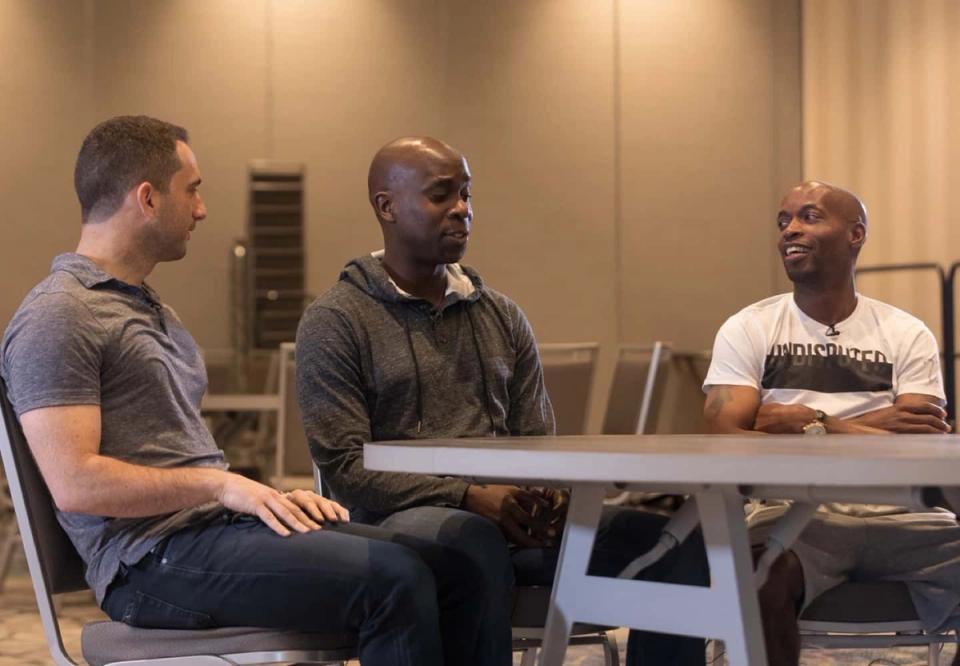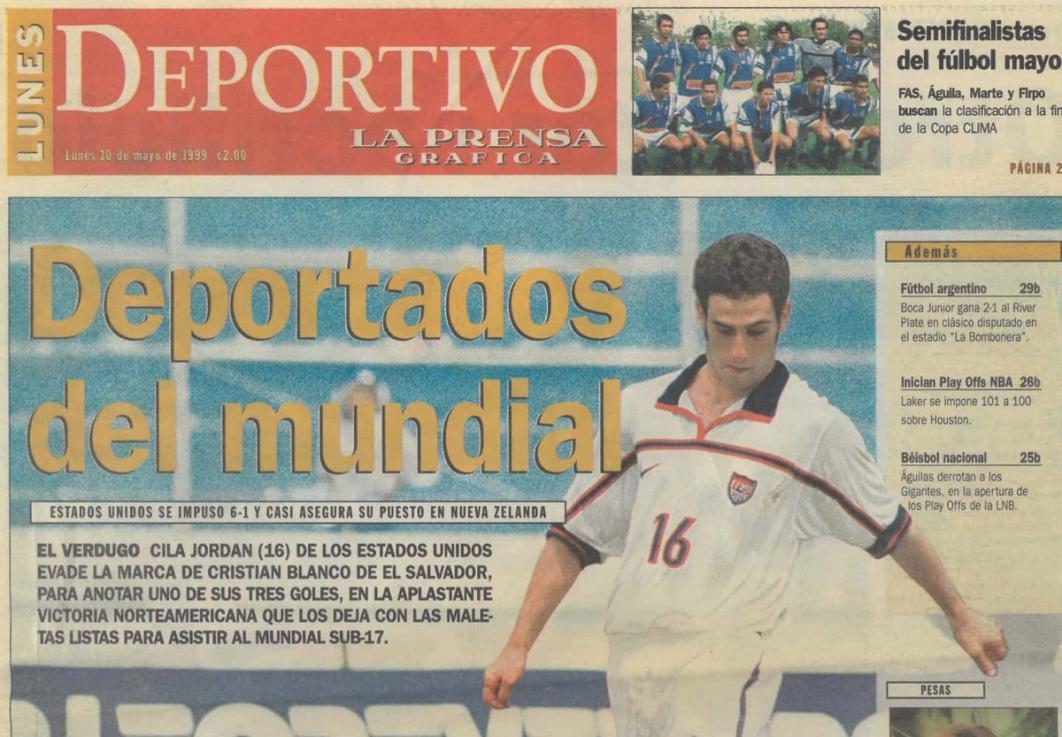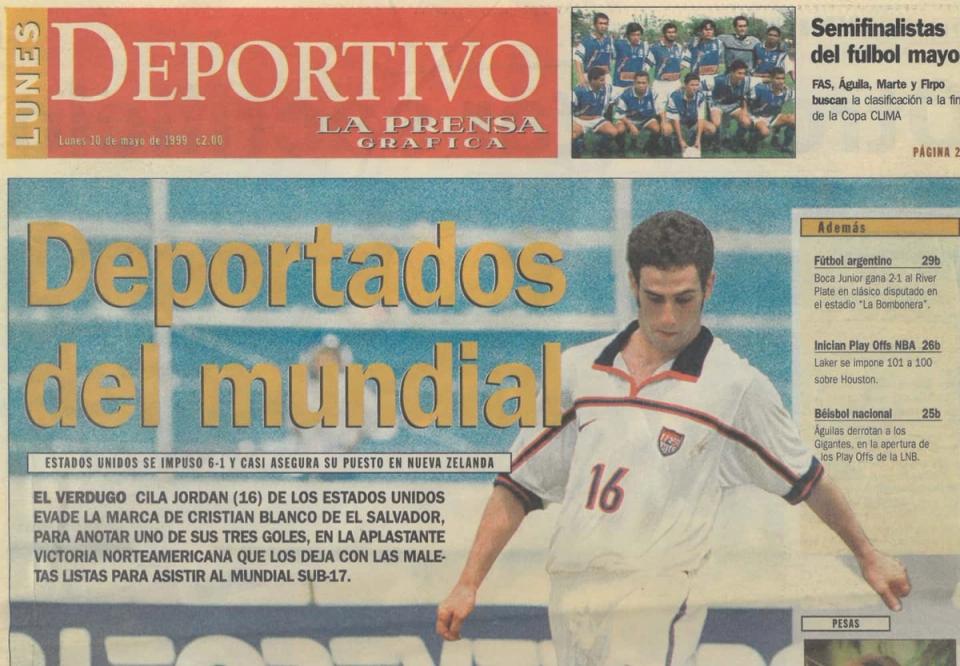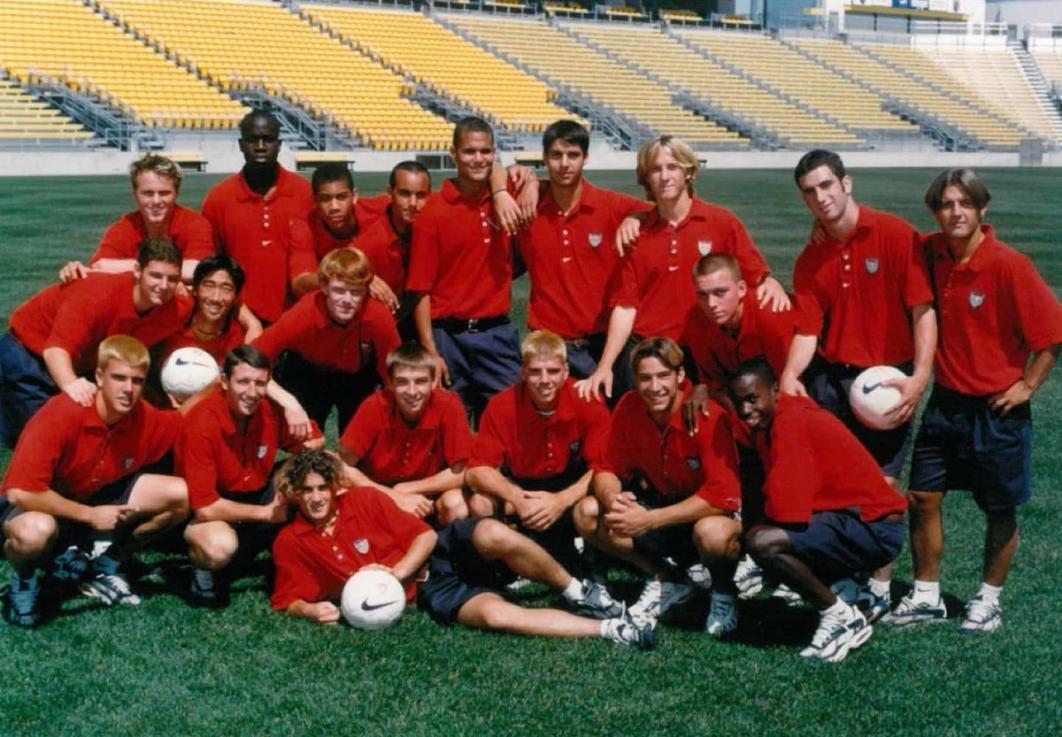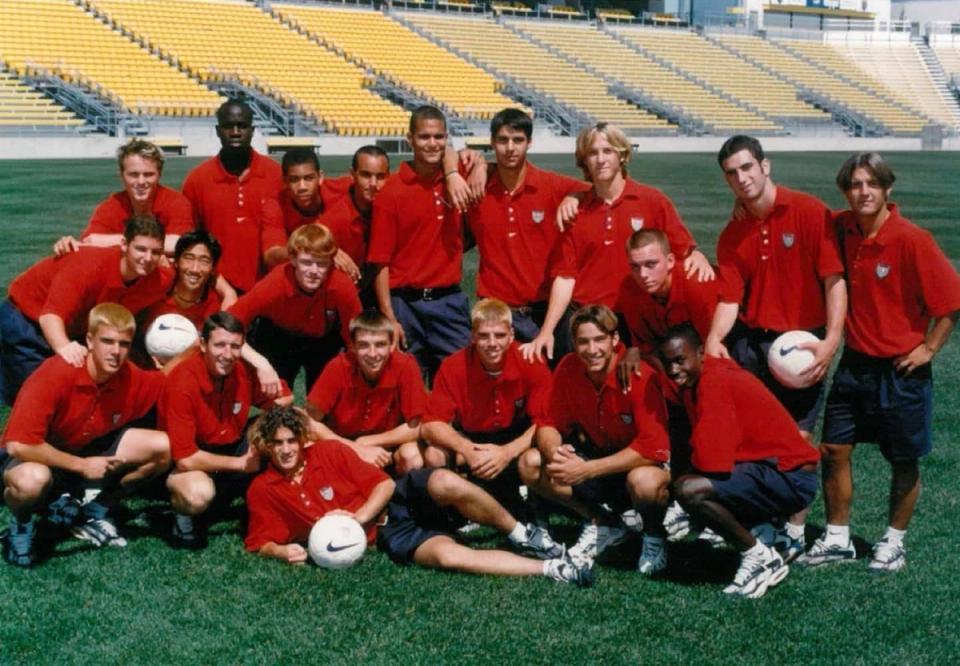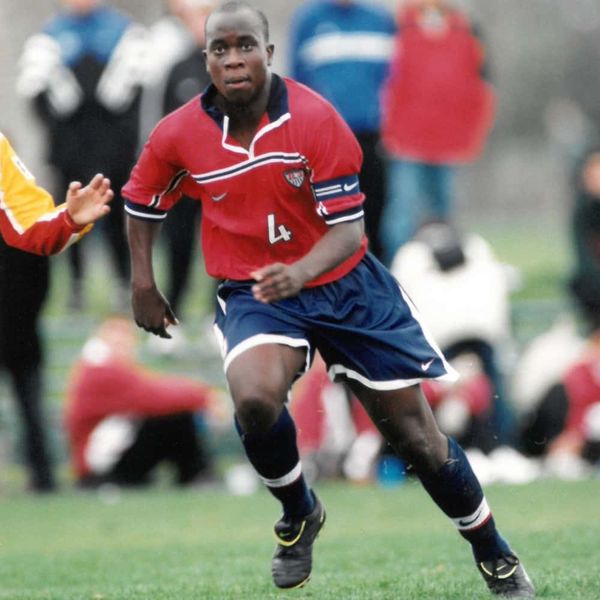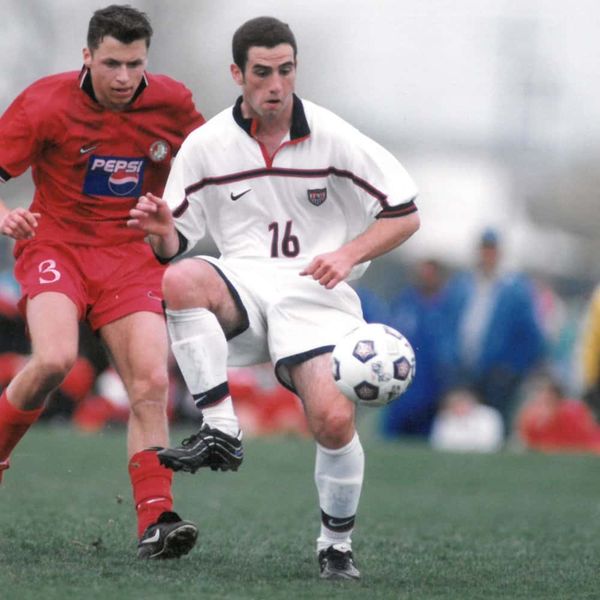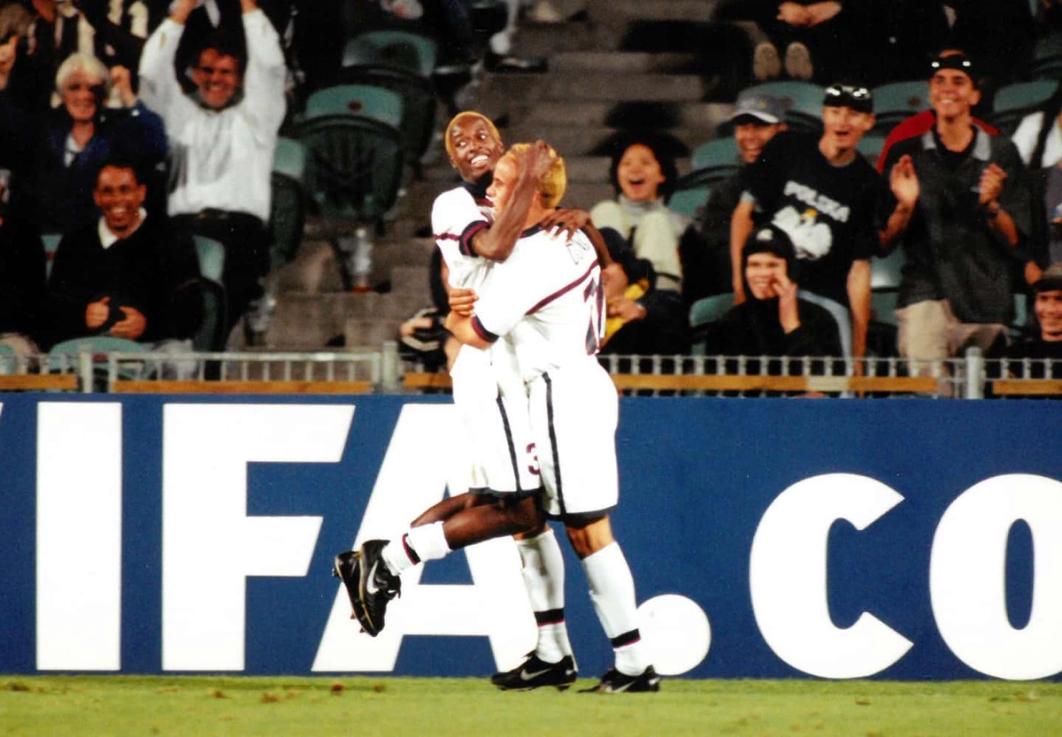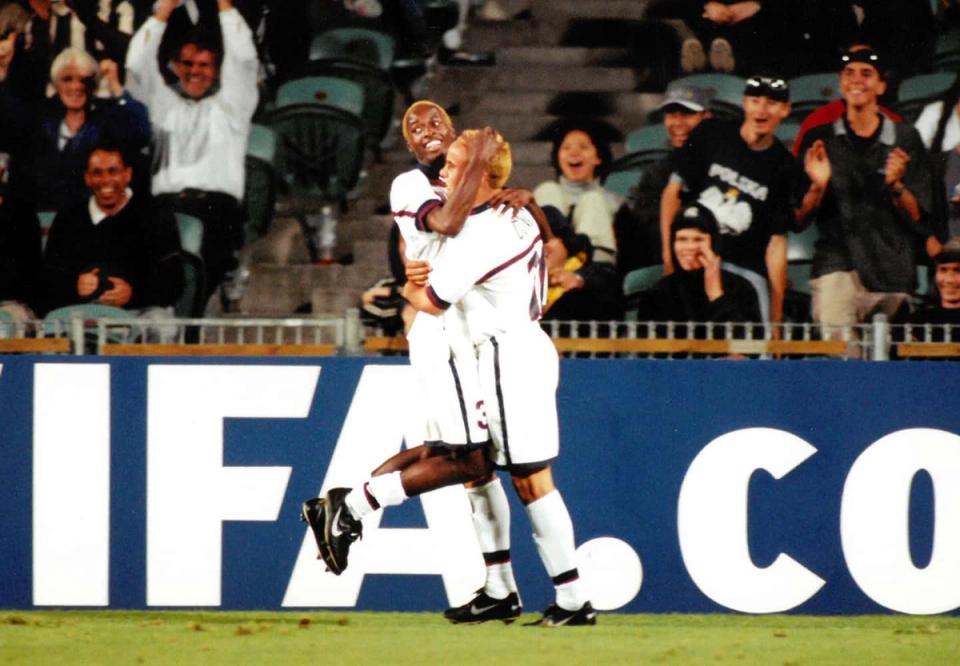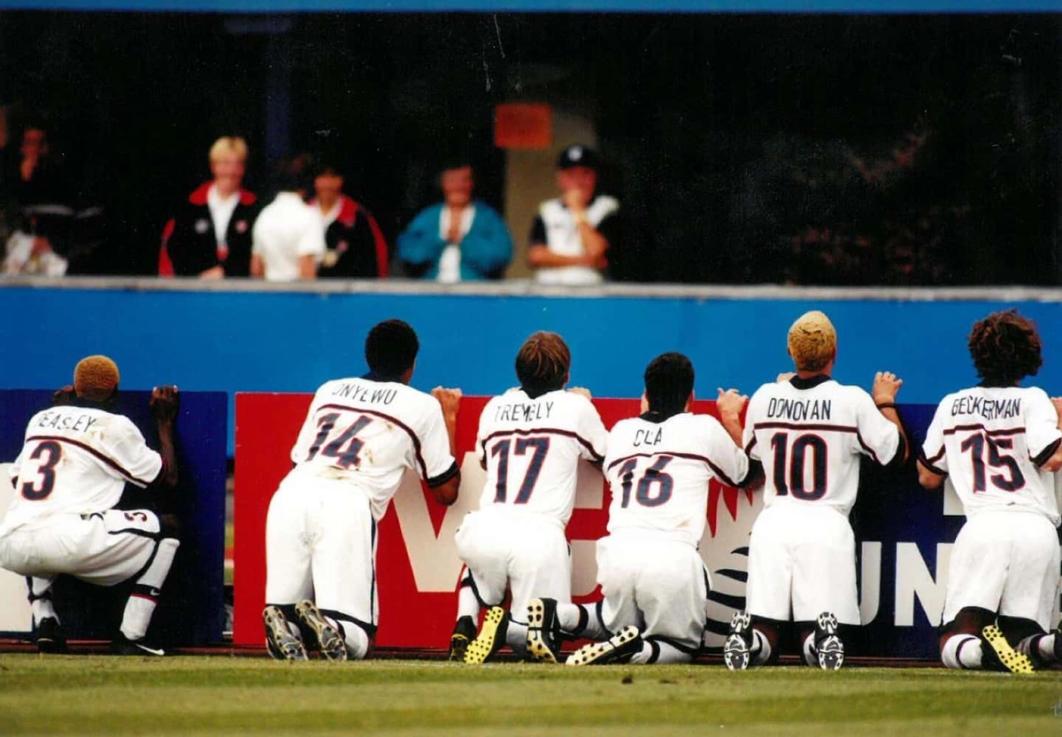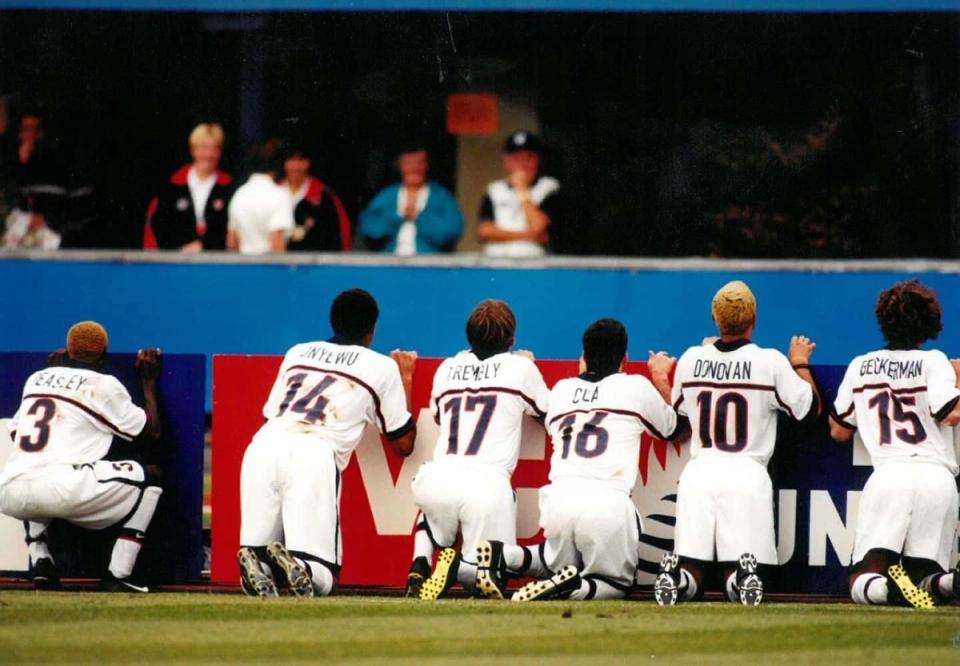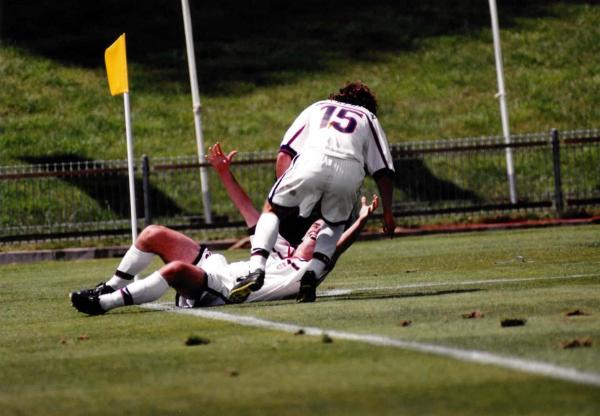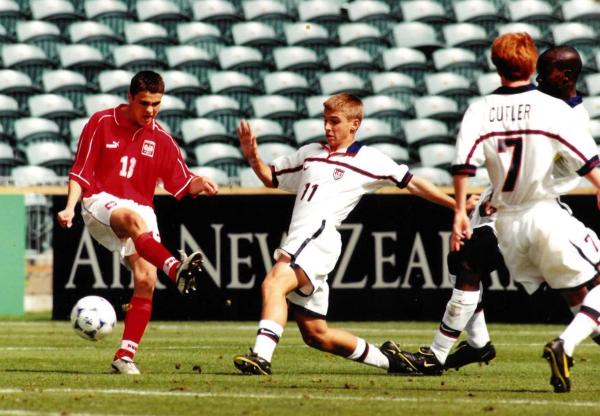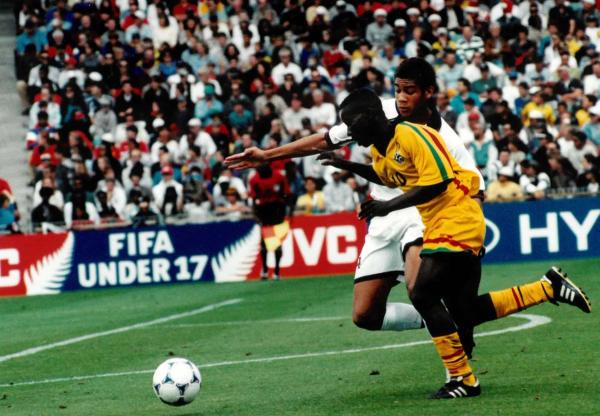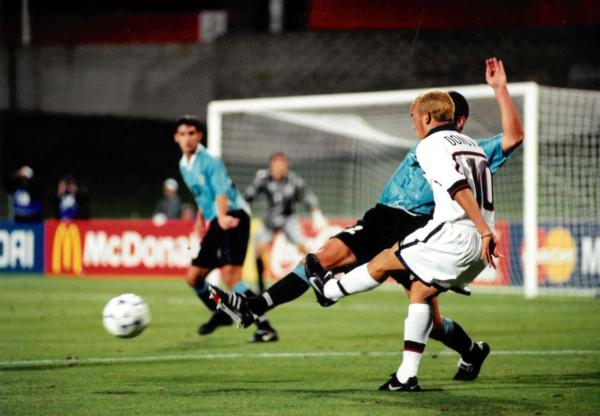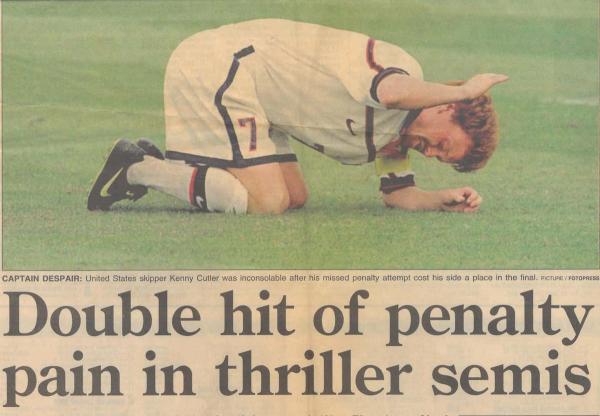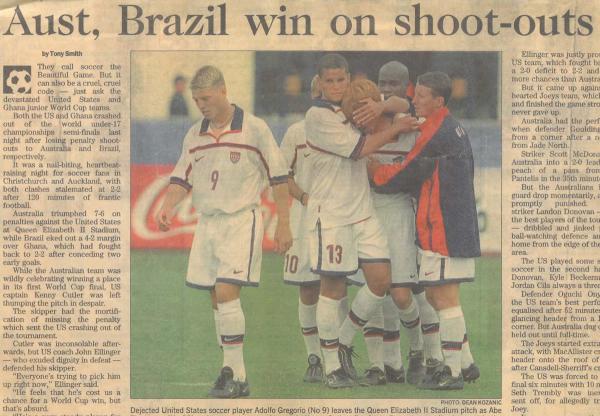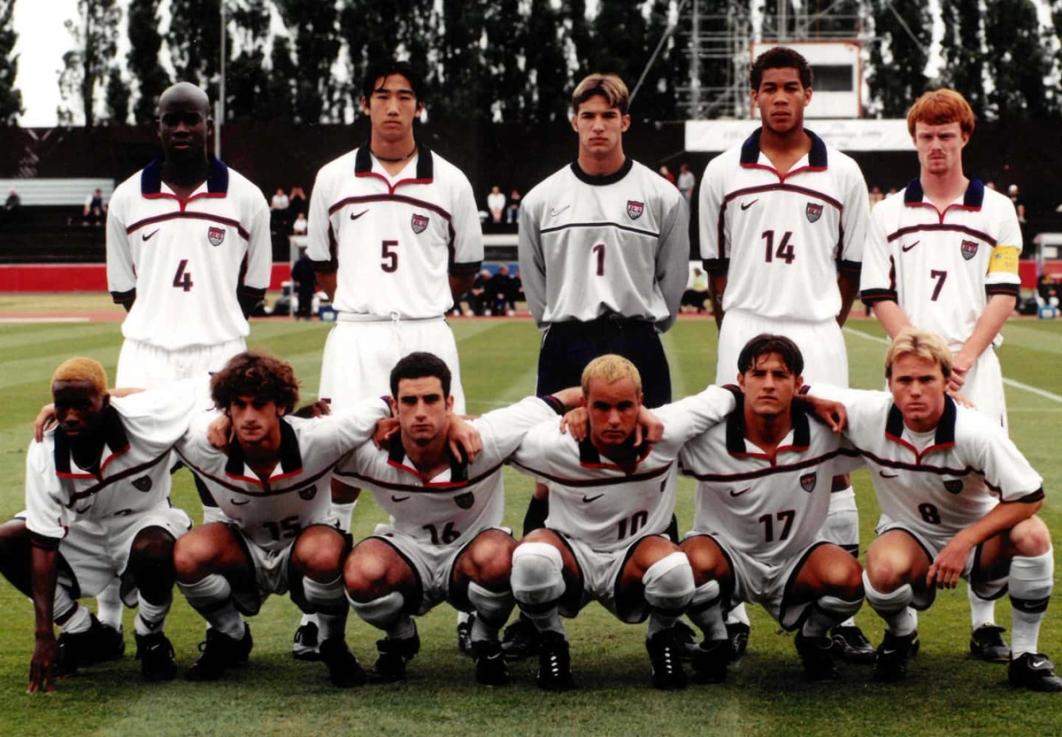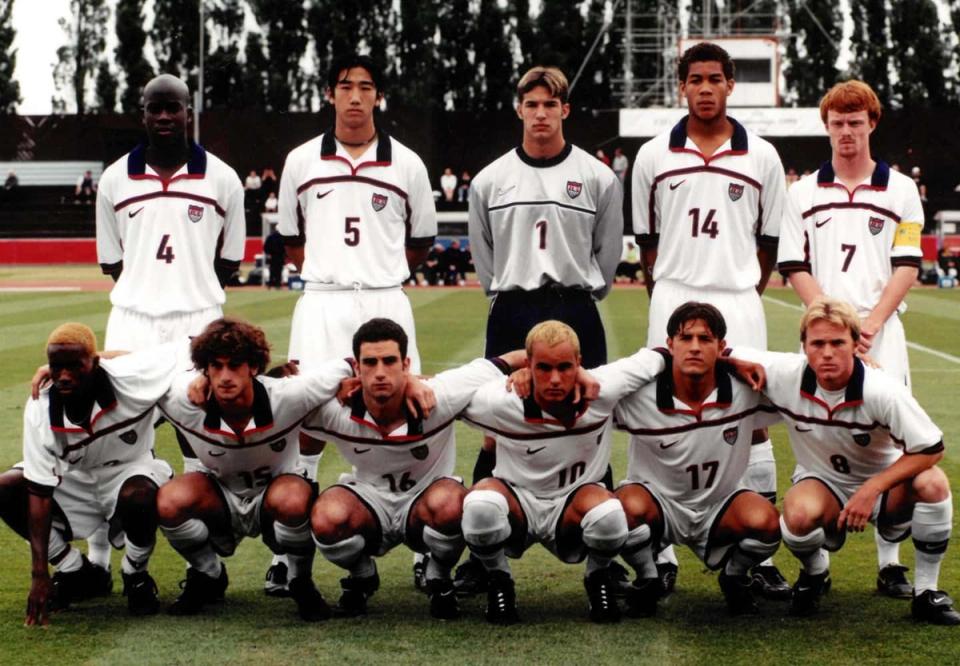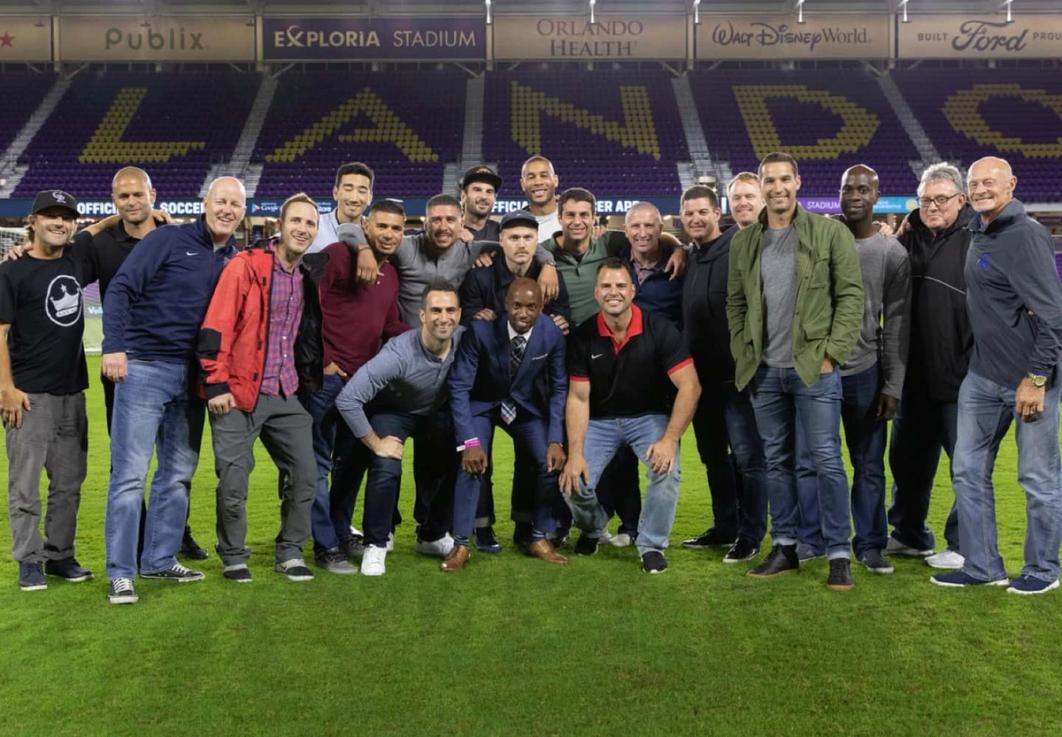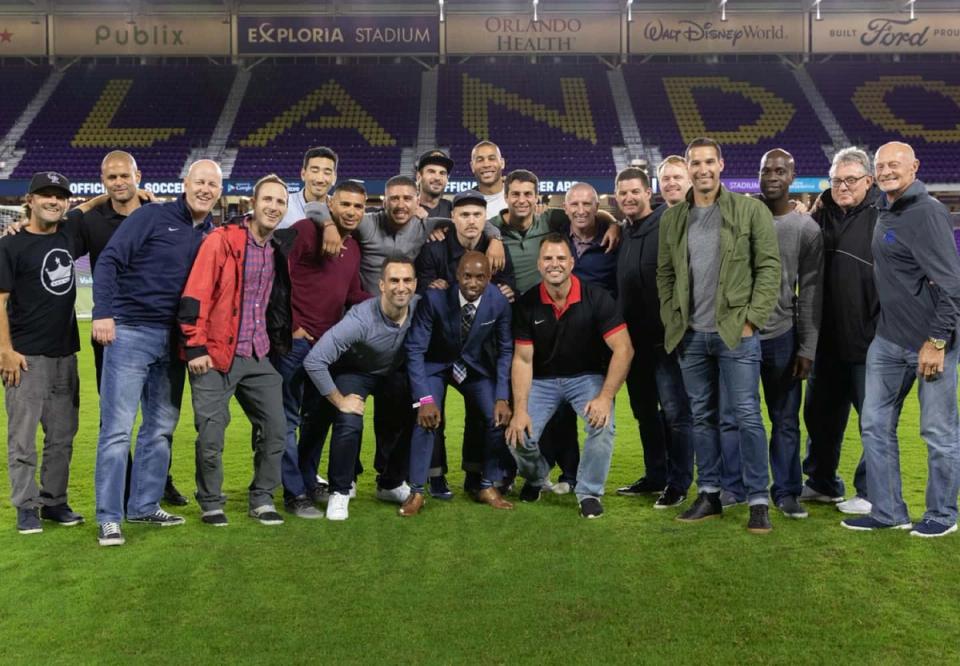Playing in Montego Bay, the Reggae Boyz needed just a draw, while the USA needed a win to directly qualify. A gritty game saw the hosts grind out a scoreless tie, sending Jamaica directly to the World Cup, and forcing the USA to a home-and-away playoff with El Salvador.
And to make matters worse…
Akwari: “Landon [Donovan] got a red card against Jamaica, so for the first leg in El Salvador, he was suspended and couldn’t play. At the time, Landon was scoring a lot of the goals, but we felt confident in our team and ability. As 16 and 17-year-olds, John Ellinger told us that when we got off the bus, you’re going to have fans that are going to want to take your head off, they’re going to be yelling and screaming at you, there are going to be security guards with machine guns…
“We get to the stadium and the fans are raucous. We’re not going to change – we already had our gear on. We were just going to have a quick meeting and get out on the field. We’re in the locker room and the whole place is shaking. It was just an incredible environment. Then about 25 minutes into the game, there’s an own goal and it comes off my foot and they’re up 1-0. We look at each other after the goal and say, ‘There’s no chance we’re going home and not qualifying.’
Needing to come back from a deficit when a raucous away crowd is against you can be one part of the equation to qualifying in the Concacaf region, but the young U.S. team – specifically DaMarcus Beasley -- experienced the full scope minutes later…
Beasley: “I had a dead chicken head land on my foot as I was about to take a corner kick! I’ll never forget it. Nobody else wanted to take corners after that… It was, ‘Beas, you keep taking corners.”
Cila: “In preparations for the game, we’d watch videos of past qualifiers where the fans would throw bags of urine at the opposing players on the field. To get us prepared, we were practicing, and the coaching staff would throw water balloons at us during practice. What I realized was psychologically, getting water balloons thrown at you is not preparation for getting urine bags or other things thrown at you. None of us wanted to take corner kicks, so in that game, we were all like, ‘Beas you take the corner kicks!’ It would just be an opportunity for fans to pelt bags of urine and batteries at us.”
Beasley: “I was making signs to run a play, it hit my foot and I immediately jumped. I looked down and it was a dead chicken head right by my foot. I took the corner kick, and I don’t think anything came from it, but that’s a true story. One-hundred percent.”

